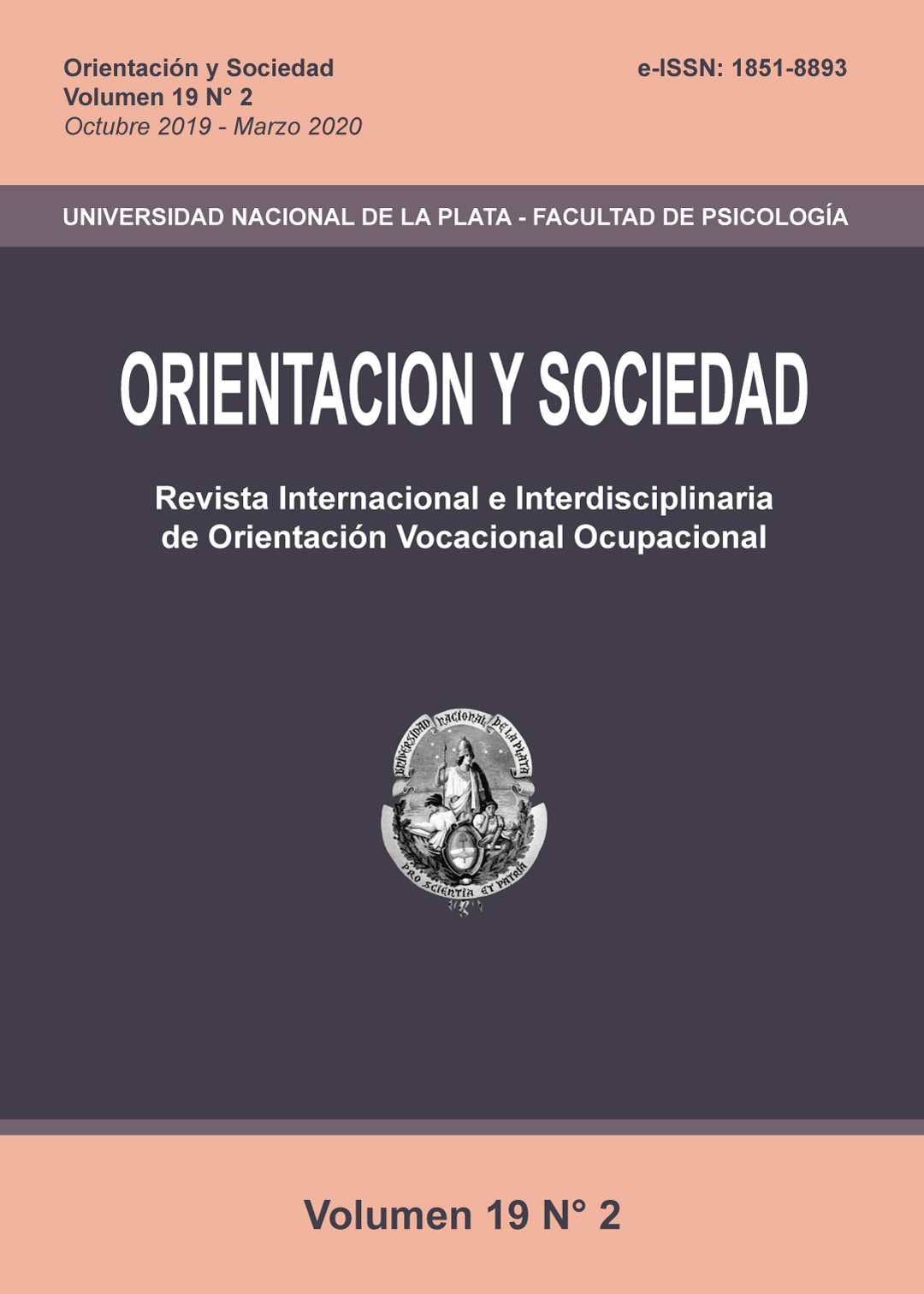TRAYECTORIAS ACADÉMICAS DE ESTUDIANTES DE PSICOLOGÍA DE LA UNIVERSIDAD NACIONAL DE CÓRDOBA
Los vínculos como favorecedores de la permanencia
Keywords:
academic paths, link, permanenceAbstract
This article presents a preview of the results of the research on Factors related to permanence in the Psychology degree. The students correspond to the same sample that participated in the initial project on “analysis of the factors involved in the educational project”, in 2017. Both investigations were approved and funded by the Ministry of Science and Technology (Secyt).
Socio-demographic data of the sample of students who continue their studies in the 2019 school year are presented, and the observation and analysis of the responses expressed in relation to the binding aspects are also indicated.
General objective
To investigate family ties and peer groups as favoring permanence.
Results
N = 333.
Mean age: 22 years.
Gender: 80% female.
Origin: 37, 2% Córdoba; 36.9% other argentine provinces; 23.1% interior of Córdoba; 2.7% foreigners.
Marital status: 80% single students; 15% as a couple. The rest divorced or separated.
40.3% of the sample has made other careers prior to the election of Psychology. It is identified that 66.7% of the sample is currently studying. 15.3% did not continue their studies in the year of admission to the Psychology degree.
Conclusions
It is recognized that family and peer group links occupy a prominent place and favor the permanence, as well as the links of students with teachers, in addition to partial changes in the system of correlativity’s and curriculum of the career, and the visibility of areas that accompany and strengthen the course, appear as institutional aspects valued positively by students in the continuity of the career.
The supportive role of family members in the educational project, both emotionally and economically, and the ties of friends, colleagues, in this first stage of university life, is essential for the construction of subjectivity. Having been recognized from the desires, qualified from different linkages, each subject has learned according to their personal history, to recognize or not in certain personality traits. The process of vocational subjectification is played in the pre-determination of family ties, desires, kinship relationships, between the transmitted and the social. This determinism is not linear mechanic, but it influences from different temporalities and spaces, where the present and past, are resignified and reorganized (Canavessi De Blanco, Dadinovich, Fontenia & Strauss, 1997: 337).
























